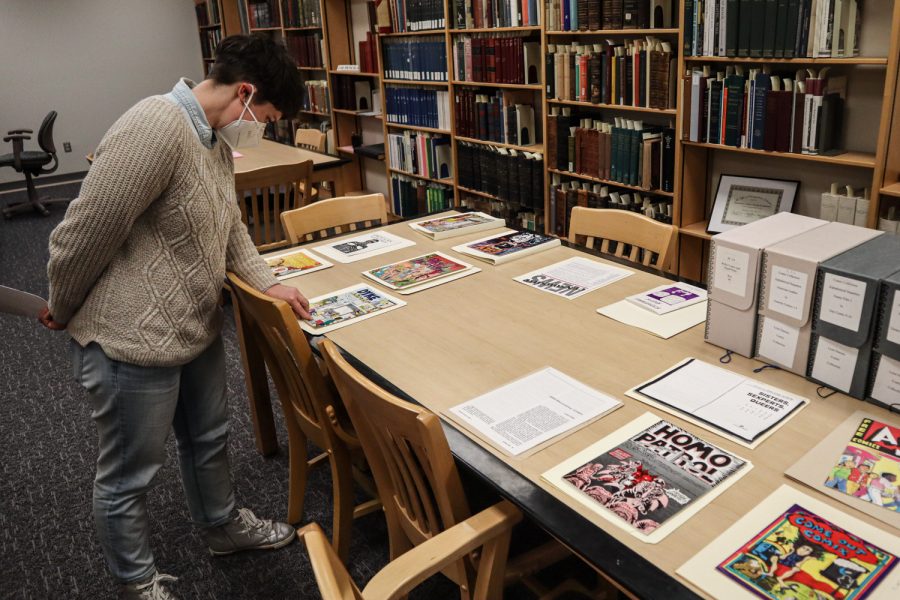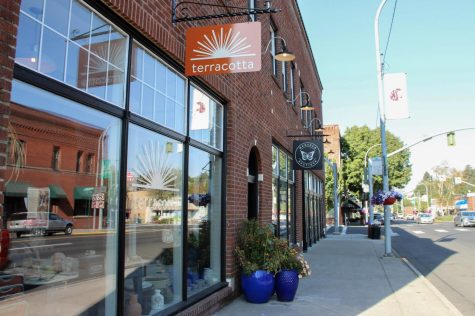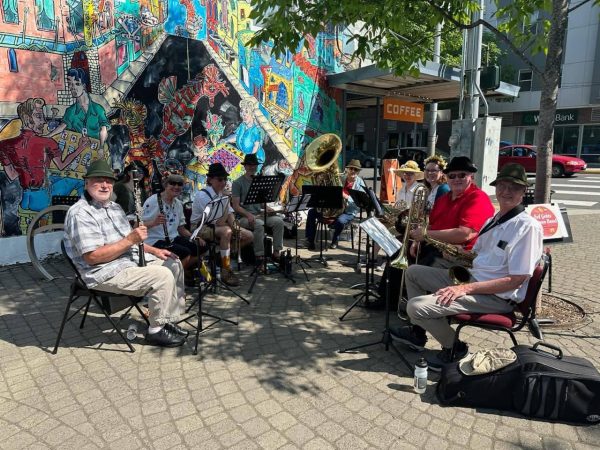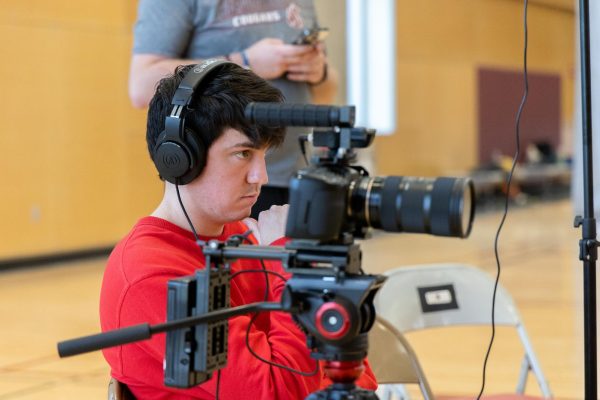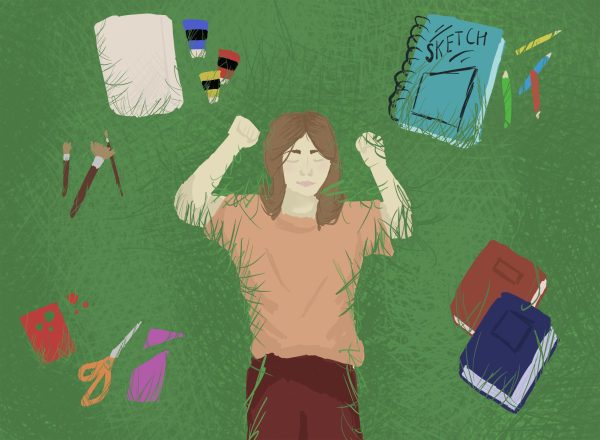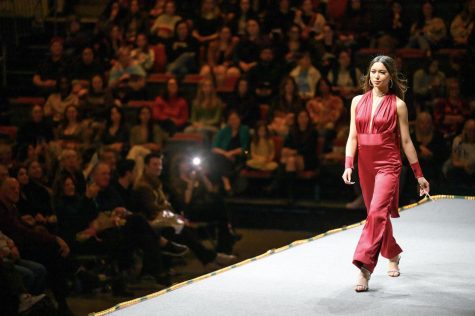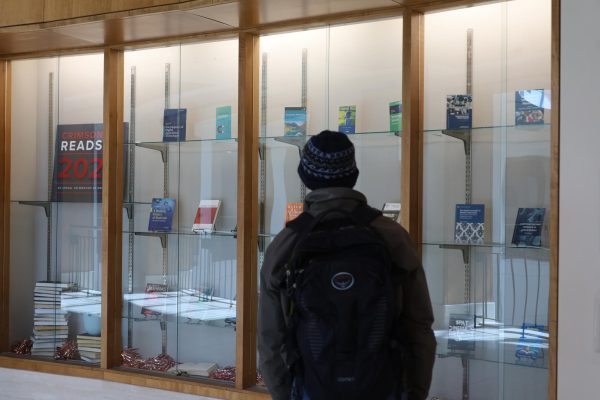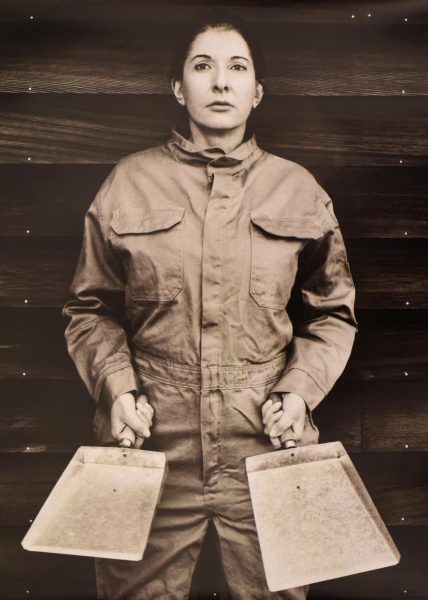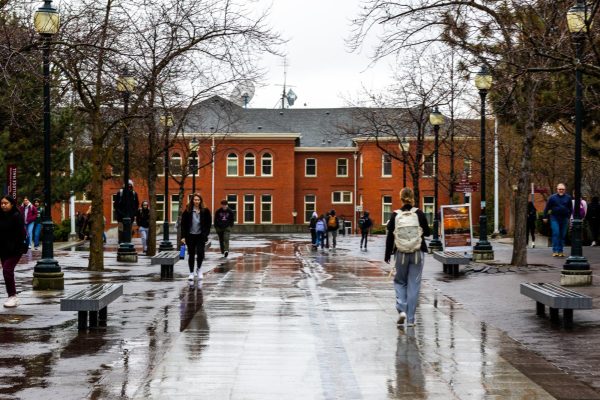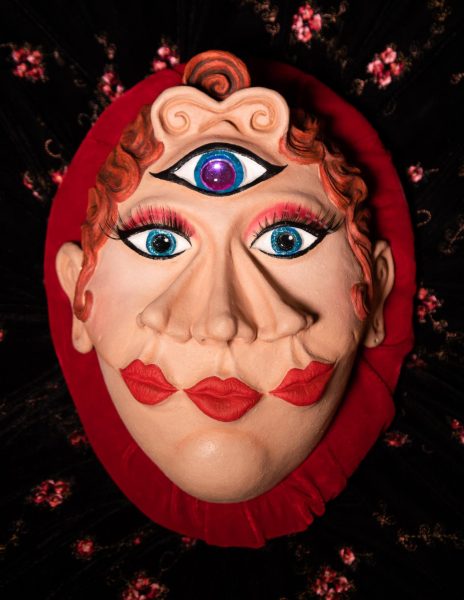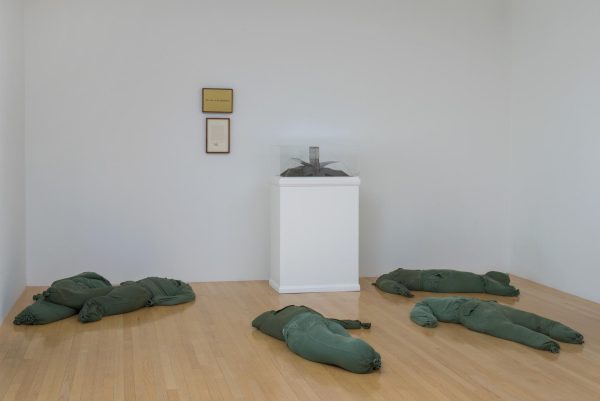Queering the Archives of LGBTQ history
Attendees discussed WSU LGBTQ library materials at this year’s Queering the Archives
WSU students participating in Terrell Library’s past Queering the Archives event, Oct. 21, 2022.
April 5, 2023
Editor’s note: Josie Cohen-Rodriguez and Hannah Cohen, who were both interviewed for this article, are married.
One-fiftieth of a percent.
That is the percentage of LGBTQ-focused library materials in the WSU Manuscripts, Archives and Special Collections. In total, there are about three linear miles of materials at WSU libraries, according to a 2023 estimate from a professional visual scan. Of that, two-and-a-half linear feet are related to LGBTQ issues.
On March 29, Queering the Archives focused on a community-driven effort to preserve LGBTQ collections in the WSU libraries. Not every LGBTQ-focused archive in the collection is positive, Josie Cohen-Rodriguez, WSU LGBTQ Center student life and community coordinator, said.
“One of the main things that stood out to me that was so jarring is that even though it’s only 0.02% of that content and material, most of it was upsetting,” Cohen-Rodriguez said.
One letter in the archive stated, “attached are 53 letters received since the end of May expressing opposition to the proposed rule on homosexuals in student groups. There are 149 letters of the same viewpoint in that file that have been answered.”
Lotus Norton-Wisla, WSU Libraries community outreach archivist, said one of the most important goals for the night was to meet, discuss and learn about LGBTQ history together. After introductions and a presentation on the archive, participants broke into small groups to discuss selected materials from the archives.
An archive is materials that are saved for enduring value for the long-term future, Norton-Wisla said. Value does not refer to the cost or monetary value of the archive, Norton-Wisla said, but rather what is important. An archive can include many materials from photos to videos to documents, created recently or in the distant past.
“When we kind of started talking about some of these ideas, a big part of the discussion was the gaps. Especially around queer history of what’s not there and why it is not there. And sometimes those silences can really speak volumes,” she said.
Besides WSU, other organizations that are working to preserve LGBTQ history include Queer History South, the Invisible Histories Project, the Gay and Lesbian Archives of the Pacific Northwest and the Digital Transgender Archive, Norton-Wisla said.
Not every item in the archive was negative. Some were LGBTQ-positive, like a pamphlet educating readers about homosexuality, an appendix from the 1985 Young Women’s Christian Association (YWCA) National board titled “What is Homophobia,” and queer comics.
Hannah Cohen, a WSU College of Veterinary student who attended the event, said that the discussions about LGBTQ history were respectful.
“I felt like there was kind of a listening mindset. So I felt like people were trying to listen to other people’s perspectives and things like that,” Cohen said.
She said that discussing the burning of LGBTQ books in Germany before World War II stressed the importance of queer archives and the need to maintain them, even in times when the majority does not favor maintaining those archives.
Some of the archive materials at the event were zines from Cohen-Rodriguez’s personal collection made by LGBTQ artists on the Palouse. The zines had a wide variety of focus, from diagrams related to country living to love poems to a memoir.
Cohen-Rodriguez said that a lot of the LGBTQ history they found was from other places, not the Palouse.
“I think the funniest and most joyful things that were in the archives are actually this collection of smut magazines, or smut comics,” she said. “They were like the most playful thing that we had, but, but none of those were from here. They’re all from Chicago, New York and San Francisco.”
One vision of the project is documenting queer rural life and its connection to rural spaces, Cohen-Rodriguez said. LGBTQ people in Seattle; Portland, Oregon; and Spokane are not separate but connected to the community and life on the Palouse. The Queering the Archives organizers plan to do one public event per semester.
Norton-Wisla said she appreciated the active learning of the participants.
“I think there was a lot of excitement in the room, and I definitely saw a lot of deep listening and support of each other as people were discussing,” she said. “And really bringing so many different perspectives from people’s different fields of study, whether they’re students or faculty or in the community, I really appreciated hearing that.”

